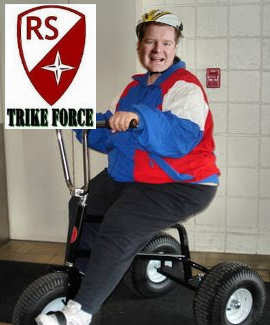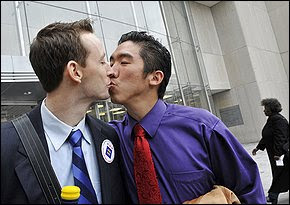Matt Duss has an article in The Nation, "Attack of the Cheneys," that you really ought to read, especially if you haven't been paying attention to cable news, CPAC, the blogs, etc. Besides her father, Liz Cheney is someone else to watch out for.
Glad someone besides me is saying things like this:
No question about it: Liz and Dick Cheney are on a mission, but just what is that mission? Some of it is clearly personal: in Dick's case, it's about burnishing his legacy; for Liz, there's the possibility of a run for Congress or the Senate. But in order to reposition themselves to retake the reins of power, the Cheneys must rescue the "global war on terror" from the ash heap of history, and they're doing this by playing the one card they've got: fear.
And this:
It turns out, however, that being disastrously wrong on the most significant foreign policy questions of the era is no barrier to continued influence in American politics. Even though their bong-hit theories about transforming the Middle East at the point of an American gun retain about as much popular appeal as E. coli, the neocons continue to impact US foreign policy debates through an entrenched network of think tanks (the American Enterprise Institute, the Foundation for Defense of Democracies, the Hudson Institute), publications (The Weekly Standard, Commentary, National Review), supportive editorial boards (the Washington Post, the Wall Street Journal) and, of course, Fox News.
And this:
Crucially, Kagan and Kristol's views were not offered primarily as an analysis of foreign policy or international affairs but as a formula for conservative political success. Finding monsters abroad was, in their view, necessary for maintaining conservative power at home. September 11 provided the perfect monsters to match neoconservatives' ambitions, and they made the most of the opportunity. They won't give up the monsters without a struggle.
Interesting point here, too:
"The problem for knowledgeable Republican foreign policy realists like Colin Powell, Dick Lugar and Chuck Hagel is that the neocons are able to dismiss their concerns and policy recommendation as 'me-tooism' of the 'liberal' foreign policies of the Democratic Party," says Tom Shachtman, co-author of The Forty Years War: The Rise and Fall of the Neocons From Nixon to Obama. Shachtman suggests that the neocons greatly benefit from the news media's tendency toward sensationalism. "Their far-out, deliberately argumentative and provocative stances are, they know, much more attractive to media outlets than the stances of the realists," Shachtman says. "The media's current mantra is, 'Let's you and him fight,' and so if a foreign policy moderate is reluctant to utter fighting words, any media outlet that is scrambling for ratings will find a neocon to do so."
One more point to highlight:
Pulitzer Prize-winning journalist Barton Gellman, author of the book Angler: The Cheney Vice Presidency, says that Liz has been the driving force behind her father's reappearance on the national scene. "He really doesn't care what anyone thinks of him," Gellman says. "She's much more interested in responding to his critics and getting him to respond. It's because of her more than anyone that he's writing his memoirs. She's encouraging him to get out there."
Of course, she is regularly said to have office-holding ambitions, so this legacy-burnishing on her father's behalf is something less than family loyalty. Here's the good news, though:
As for Liz's own views, Gellman says, "From everything I can tell, she's a little bit to the right of her father.
There's quite a bit more about her, as well as the organization she founded with Bill "Always Wrong" Kristol, but I think I've blockquoted enough. Well worth a look.
(x-posted | h/t: Robert Farley ← do click, for a laugh)
 Tom Toles, that's who. One of my favorite political cartoonists.
Tom Toles, that's who. One of my favorite political cartoonists.





















